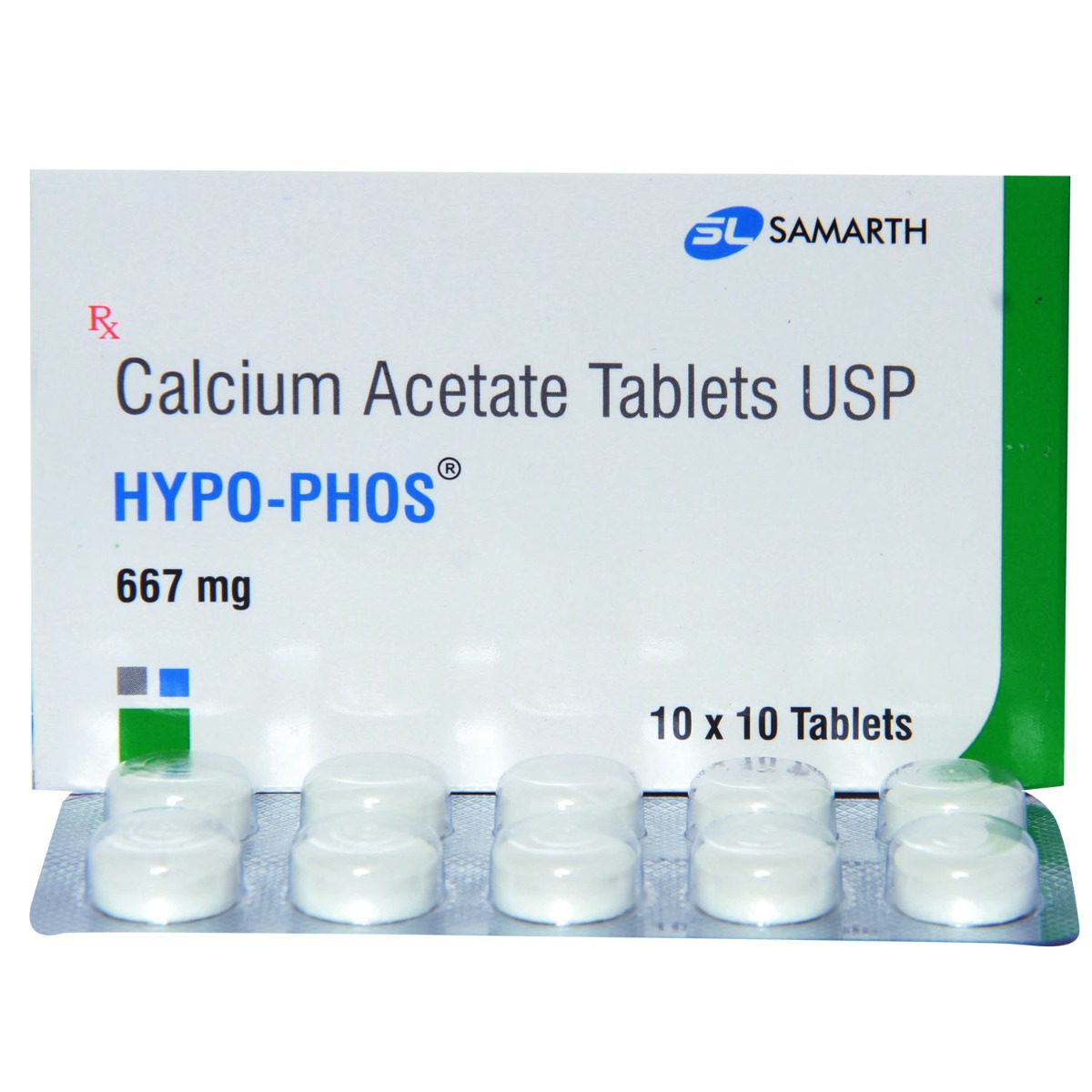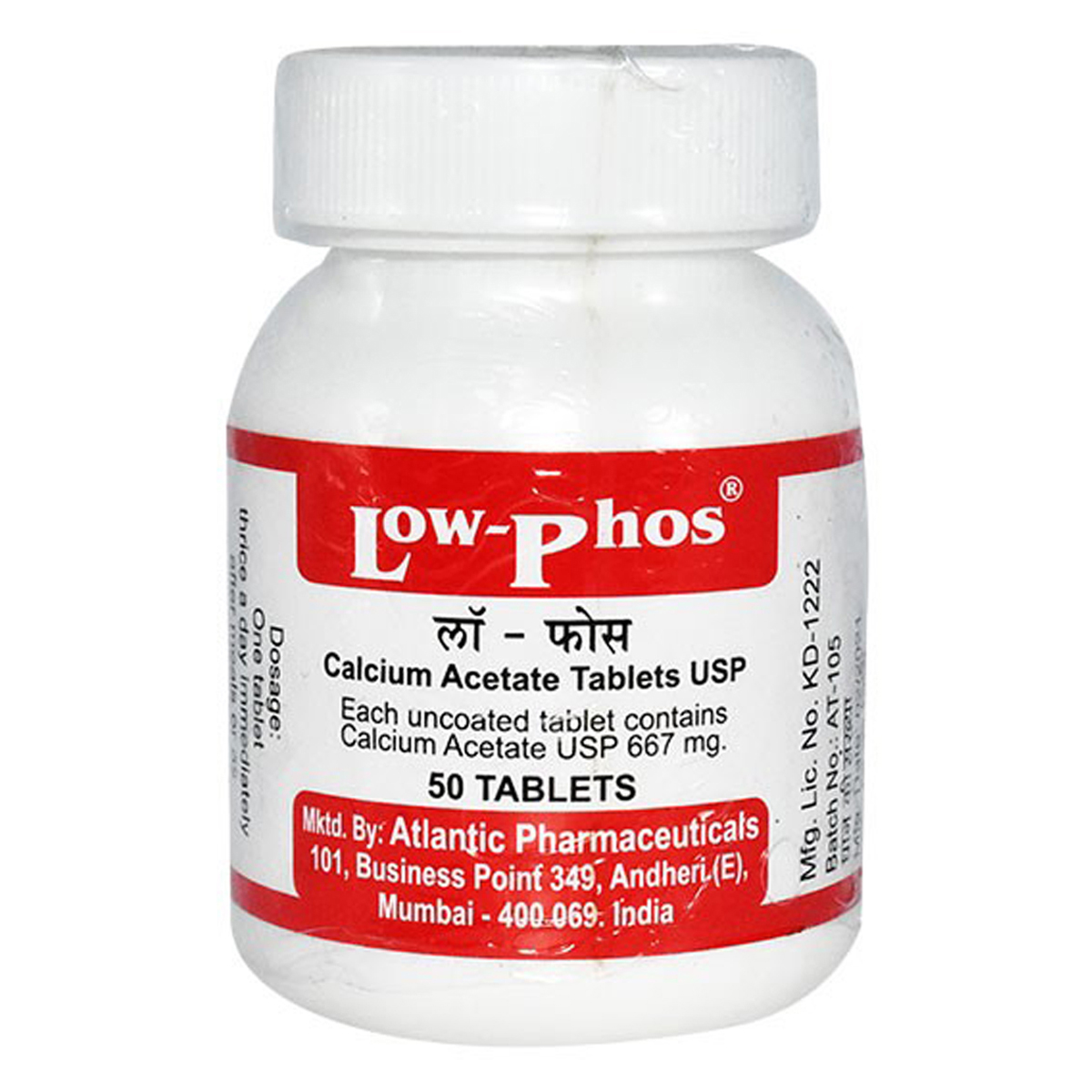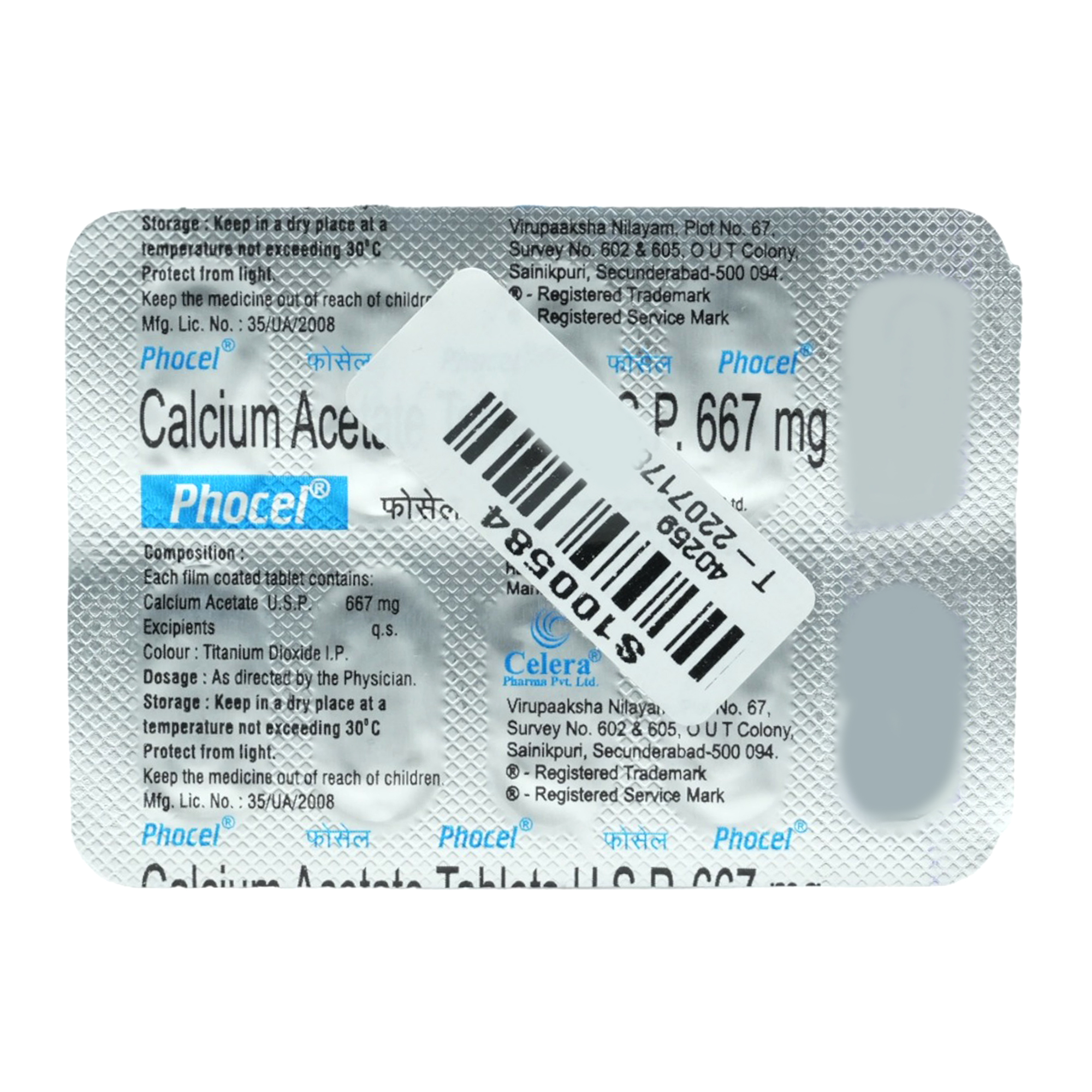Calips-667 Tablet
MRP ₹67
(Inclusive of all Taxes)
₹10.1 Cashback (15%)

Available Offers
Therapeutic Class
Author Details
We provide you with authentic, trustworthy and relevant information
Drug-Drug Interactions Checker List
- NORFLOXACIN
- CIPROFLOXACIN
- HYDROCHLOROTHIAZIDE
- CHLORTHALIDONE
- ALENDRONATE
- RISEDRONATE
Drug-Drug Interactions
Drug-Drug Interactions
Login/Sign Up
Co-administration of Calips-667 Tablet may interfere with the absorption of Demeclocycline and reduce its effectiveness.
How to manage the interaction:
Taking Calips-667 Tablet may interfere with the absorption of Demeclocycline and reduce its effectiveness. Therefore, Calips-667 Tablet and demeclocycline should not be taken orally at the same time. Maintaining a gap of 2-4 hours between both medicines is advised. Do not discontinue the medication without consulting a doctor.
Co-administration of doxycycline with Calips-667 Tablet can reduce its effectiveness.
How to manage the interaction:
Although there is an interaction between Calips-667 Tablet and doxycycline, it can be taken together if prescribed by a doctor. It is adviced to take doxycycline 2 hrs before or 6 hours after taking Calips-667 Tablet. Do not stop using any medications without talking to a doctor.
Co-administration of Oxytetracycline when taken along with Calips-667 Tablet lowers the levels of either medication. This interaction applies to the oral forms of both medications.
How to manage the interaction:
Although taking Oxytetracycline and Calips-667 Tablet together can result in an interaction, it can be taken if a doctor has prescribed it. Do not stop using any medications without talking to a doctor.
Calips-667 Tablet may interfere with the absorption of lymecycline and reduce its effectiveness.
How to manage the interaction:
Calips-667 Tablet may interfere with the absorption of lymecycline and reduce its effectiveness. Although there is an interaction, Calips-667 Tablet can be taken with lymecycline if prescribed by the doctor.
Co-administration of Dolutegravir with Calips-667 Tablet can reduce the effectiveness of dolutegravir.
How to manage the interaction:
Taking Dolutegravir with Calips-667 Tablet together can possibly result in an interaction, they can be taken together if prescribed by your doctor. It is recommended to take dolutegravir at least two hours before or six hours after the Calips-667 Tablet dose. Do not discontinue any medications without consulting a doctor.
Drug-Food Interactions
Drug-Food Interactions
Login/Sign Up
Drug-Diseases Interactions
Drug-Diseases Interactions
Login/Sign Up
Increased serum calcium and phosphate levels that are greater than the solubility limit can cause calcium-phosphate precipitates to form in the body's vascular and renal systems as well as other soft tissues.
How to manage the interaction:
Therapy with Calips-667 Tablet should be administered with extreme caution in patients with hyperphosphatemia (high phosphate in blood).
The contraction of heart muscle and the transmission of electrical impulses both include calcium. Patients with heart illness should receive therapy with calcium salt formulations (especially IV) with caution.
How to manage the interaction:
Therapy with Calips-667 Tablet (particularly IV) should be administered cautiously to patients with cardiac disease.
Active transport and passive diffusion are both used to absorb calcium from the gastrointestinal system.
How to manage the interaction:
Malabsorption may decrease the absorption of Calips-667 Tablet.
Patients with sarcoidosis may occasionally experience hypercalciuria, with or without hypercalcemia.
How to manage the interaction:
Hypercalciuria (excessive urinary calcium excretion), with or without hypercalcemia (high calcium levels), may occasionally occur in patients with sarcoidosis. Therapy with Calips-667 Tablet should be administered cautiously and only if necessary in patients with sarcoidosis.
Drug Warnings
Before taking the Calips-667 Tablet , inform your doctor if you are allergic to any of its ingredients. If you are pregnant, planning to become pregnant, or breastfeeding, or if you have high levels of calcium in your blood or urine or low levels of phosphate in your blood. Long-term high calcium levels in your blood may lead to a build-up of calcium in your blood vessels or soft tissues. Your blood calcium levels will be checked on a regular basis by your doctor. If your levels are too high, your dose will be lowered, or your therapy will be stopped immediately. Other medications, especially antibiotics (such as norfloxacin, ciprofloxacin, or tetracyclines), diuretics (such as thiazides), and bisphosphonates (used to treat bone problems), should not be taken with Calips-667 Tablet unless prescribed by a doctor.
Side Effects of Calips-667 Tablet
- Nausea (feeling sick)
- Vomiting (being sick)
- Constipation
- Diarrhoea
- Rash
Directions for Use
Medicinal Benefits Mweb
Key Benefits
Calips-667 Tablet belongs to the class of medicines known as phosphate binders. It contains calcium acetate. It is commonly used to treat kidney failure in individuals undergoing regular haemodialysis or continuous ambulatory peritoneal dialysis (CAPD). In kidney failure, the phosphate levels in the blood can be high. Calips-667 Tablet controls the phosphate levels by removing phosphate from the food in your stomach before it enters the bloodstream. Thus, it helps to prevent the high phosphate levels in the stream.
Uses of Calips-667 Tablet
About Calips-667 Tablet
Calips-667 Tablet belongs to the class of medicines known as phosphate binders. It is used to control high blood levels of phosphorus in people with kidney disease who are on dialysis (medical treatment to clean the blood when the kidneys are not working properly). High phosphorus, also called hyperphosphatemia, means you have extra phosphorus in your blood.
Calips-667 Tablet contains calcium acetate, which works by binding phosphorus that you get from foods in your diet and prevents it from being absorbed into your bloodstream.
Use Calips-667 Tablet as advised by your doctor. You may experience nausea (feeling sick) or vomiting (being sick), constipation and diarrhoea. Most of these side effects do not require medical attention and gradually resolve over time. However, if the side effects persist, contact your doctor.
Before taking Calips-667 Tablet , let your doctor know if you are allergic to any ingredient of it. Inform your doctor before taking Calips-667 Tablet if you are pregnant, planning to become pregnant, or breastfeeding if you have lactose intolerance, have high levels of calcium in your blood or urine, or have low levels of phosphate in your blood. It is recommended not to consume alcohol while on treatment with this medicine. Inform your doctor about your medical history and other medications you are currently taking to rule out any potential negative effects.
Online payment accepted
know your delivery time
Provide Delivery Location
Author Details
We provide you with authentic, trustworthy and relevant information
Therapeutic Class
All Substitutes & Brand Comparisons
RX
Hypophos 677 mg Tablet 10's
Samarth Life Sciences Pvt Ltd
₹18
(₹1.62 per unit)
73% CHEAPERRX
Low Phos 667 mg Tablet 50's
Atlantic Pharmaceuticals Inc
₹117
(₹2.11 per unit)
65% CHEAPERRX
Phocel Tablet 10's
Celera Healthcare Pvt Ltd
₹33.5
(₹3.02 per unit)
49% CHEAPER
- Inform your doctor about the nausea and discuss possible alternatives to the medication or adjustments to the dosage.
- Divide your daily food intake into smaller, more frequent meals to reduce nausea.
- Opt for bland, easily digestible foods like crackers, toast, plain rice, bananas, and applesauce.
- Avoid certain foods that can trigger nausea, such as fatty, greasy, spicy, and smelly foods.
- Drink plenty of fluids, such as water, clear broth, or electrolyte-rich beverages like coconut water or sports drinks.
- Use ginger (tea, ale, or candies) to help relieve nausea.
- Get adequate rest and also avoid strenuous activities that can worsen nausea.
- Talk to your doctor about taking anti-nausea medication if your nausea is severe.
- Record when your nausea occurs, what triggers it, and what provides relief to help you identify patterns and manage your symptoms more effectively.
- Preventing Vomiting (Before it Happens)
- Take medication exactly as prescribed by your doctor. This can help minimize side effects, including vomiting.
- Having a small meal before taking your medication can help reduce nausea and vomiting.
- Talk to your doctor about taking anti-nausea medication along with your prescribed medication.
- Managing Vomiting (If it Happens)
- Try taking ginger in the form of tea, ale, or candy to help alleviate nausea and vomiting.
- What to Do if Vomiting Persists
- Consult your doctor if vomiting continues or worsens, consult the doctor for guidance on adjusting your medication or additional treatment.
- Report the itching to your doctor immediately; they may need to change your medication or dosage.
- Use a cool, damp cloth on the itchy area to help soothe and calm the skin, reducing itching and inflammation.
- Keep your skin hydrated and healthy with gentle, fragrance-free moisturizers.
- Try not to scratch, as this can worsen the itching and irritate your skin.
- If your doctor prescribes, you can take oral medications or apply topical creams or ointments to help relieve itching.
- Track your itching symptoms and follow your doctor's guidance to adjust your treatment plan if needed. If the itching persists, consult your doctor for further advice.

Have a query?
Verified Buyers Reviews
Side Effects
- High Calcium Level In Blood
- Nausea
- Diarhoea
- Vomiting
- Itching
If any of the above side effects continue or intensify, seek medical advice. Professional guidance may be necessary for appropriate care and treatment adjustments.
Buy best Nutrition & Metabolism products by
VITAMINS AND MINERALS
OTHER SUPPLEMENTS
HEMATINICS
BONE & JOINT SUPPLEMENTS
WOMEN HEALTH SUPPLEMENTS
AMINO ACID SUPPLEMENTS
GASTRIC DISORDERS SUPPLEMENTS
IMMUNE HEALTH SUPPLEMENTS
CARDIAC SUPPLEMENTS
WEIGHT LOSS AND WEIGHT GAIN
DIABETICS SUPPLEMENTS
RESPIRATORY DISEASE SUPPLEMENTS
APPETITE SUPPRESSANTS
APPETITE STIMULANTS
NUTRITIONAL SUPPLEMENTS
Alniche Life Sciences Pvt Ltd
Abbott India Ltd
Intas Pharmaceuticals Ltd
Alkem Laboratories Ltd
Elder Pharmaceuticals Ltd
Fourrts India Laboratories Pvt Ltd
Zydus Cadila
Leeford Healthcare Ltd
Akumentis Healthcare Ltd
Cipla Ltd
La Renon Healthcare Pvt Ltd
Eris Life Sciences Ltd
Olcare Laboratories Pvt Ltd
East West Pharma India Pvt Ltd
Indoco Remedies Ltd
Lupin Ltd
Macleods Pharmaceuticals Ltd
Aristo Pharmaceuticals Pvt Ltd
Dr Reddy's Laboratories Ltd
Sun Pharmaceutical Industries Ltd
Yuventis Pharmaceuticals
Zee Laboratories Ltd
Meyer Organics Pvt Ltd
Unipark Biotech Pvt Ltd
Zydus Healthcare Ltd
Mankind Pharma Pvt Ltd
Micro Labs Ltd
Adonis Laboratories Pvt Ltd
Emcure Pharmaceuticals Ltd
Levin Life Sciences Pvt Ltd
Sanatra Healthcare Ltd
Medishri Healthcare Pvt Ltd
Anglo French Drugs & Industries Ltd
Koye Pharmaceuticals Pvt Ltd
Maxamus Pharma Pvt Ltd
Spa Newtraceuticals Pvt Ltd
Corona Remedies Pvt Ltd
Vasu Organics Pvt Ltd
DR Johns Lab Pharma Pvt Ltd
Gh Vision Care Life Sciences
Glenon Healthcare
Albert David Ltd
Apple Life Sciences
Ardent Life Sciences Pvt Ltd
BSA Pharma Inc
Biophar Lifesciences Pvt Ltd
Brio Bliss Life Science Pvt Ltd
Cadila Healthcare Ltd
Innovcare Life Sciences Pvt Ltd
Medley Pharmaceuticals Ltd
Quality Pharma
Signova Pharma
Tas Med India Pvt Ltd
Torrent Pharmaceuticals Ltd
Troikaa Pharmaceuticals Ltd
Aarux Pharmaceuticals Pvt Ltd
Ajanta Pharma Ltd
Altcare Pharmaceuticals Pvt Ltd
Bioceutics Inc
Fenestra Pharmaceuticals Pvt Ltd
Friska Nutraceuticals Pvt Ltd
Intra Labs India Pvt Ltd
Mova Pharmaceutical Pvt Ltd
Pharmed Ltd
Steris Healthcare
Acme Pharmaceuticals
Cachet Pharmaceuticals Pvt Ltd
Dr Morepen Ltd
Morepen Laboratories Ltd
Syndicate Life Sciences Pvt Ltd
Tricept Life Sciences Pvt Ltd
Winmark Healthcare Pvt Ltd
Zeno Bio Life Science Pvt Ltd
Alembic Pharmaceuticals Ltd
Alteus Biogenics Pvt Ltd
British Biologicals
Chemo Healthcare Pvt Ltd
Daffoworth Pharmaceutical Pvt Ltd
Daris Biocare
Femura Pharmaceuticals Pvt Ltd
Gynofem Healthcare Pvt Ltd
Inex Medicaments Pvt Ltd
Intra Life Pvt Ltd
Mediart Life Sciences Pvt Ltd
Orchis Pharmaceuticals
Prevego Healthcare & Research Pvt Ltd
Raptakos Brett & Co Ltd
Sanofi India Ltd
Unichem International
Ventus Pharma
Waylon Biotech Pvt Ltd
Zuventus Healthcare Ltd
Axonav Healthcare Llp
Canvarzys Healthcare Ltd
Capital Pharma
Centaur Pharmaceuticals Pvt Ltd
GlaxoSmithKline Pharmaceuticals Ltd
Glenmark Pharmaceuticals Ltd
Healing Pharma
Iva Healthcare Pvt Ltd
Specialty Supplements
CALCIUM
VITAMIN B12
VITAMIN B9
SPECIALITY SUPPLEMENT
VITAMIN D
IRON
FISH OIL OMEGA
VITAMIN B
ZINC
VITAMIN C
VITAMIN E
COLLAGEN
Cod Liver Oil
MAGNESIUM
VITAMIN B5
VITAMIN B1
Appetite Suppressant
VITAMIN A
VITAMIN K
Fat Burner
WOMEN & MOTHER NUTRITION DRINK
APPETITE STIMULANT
BODY GEL
NUTRITION DRINK
VITAMIN B6
Chromium
ENERGY DRINK
MULTIVITAMIN
SPECIALITY NUTRITION DRINK
Shampoo
Soap









